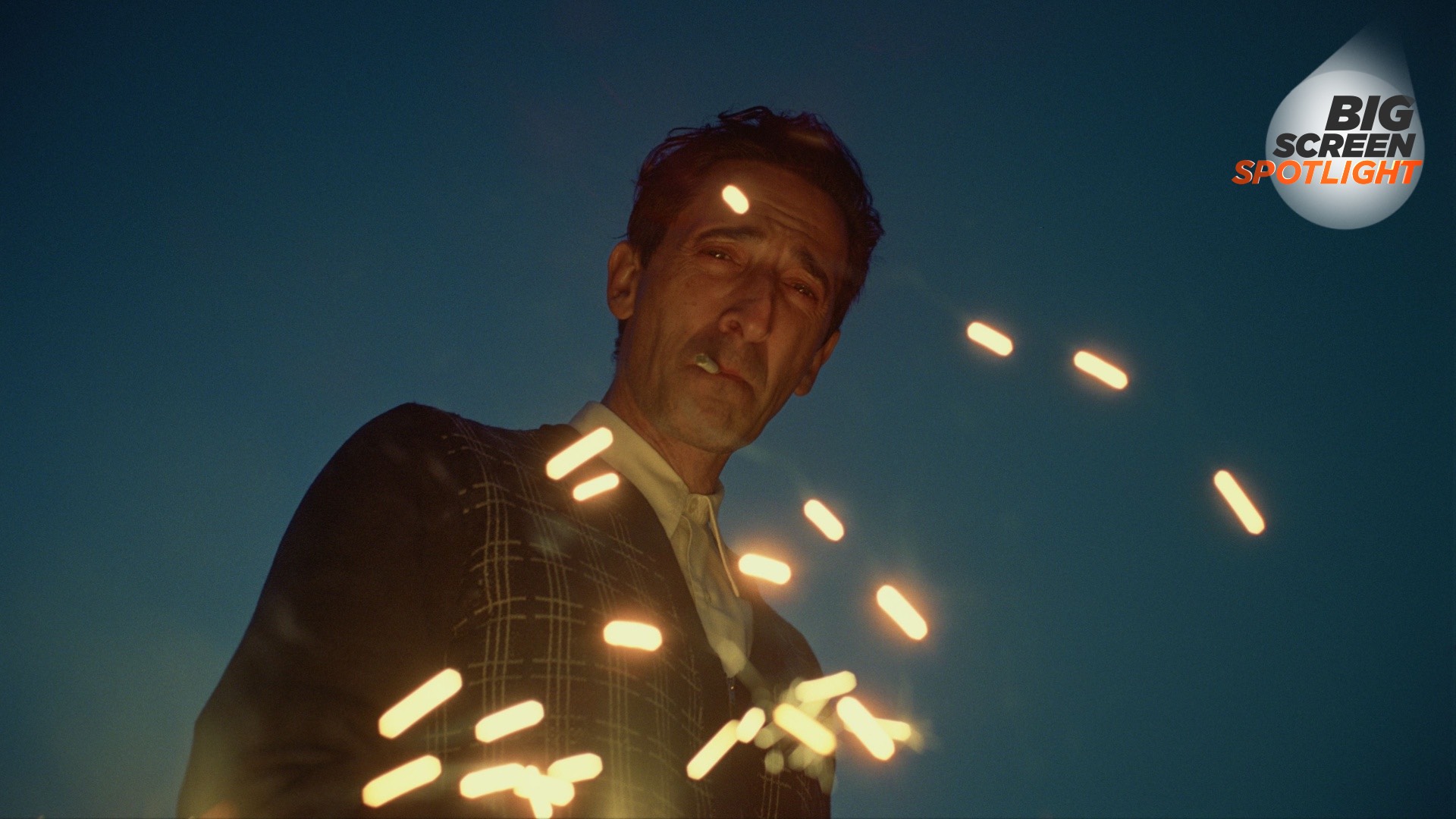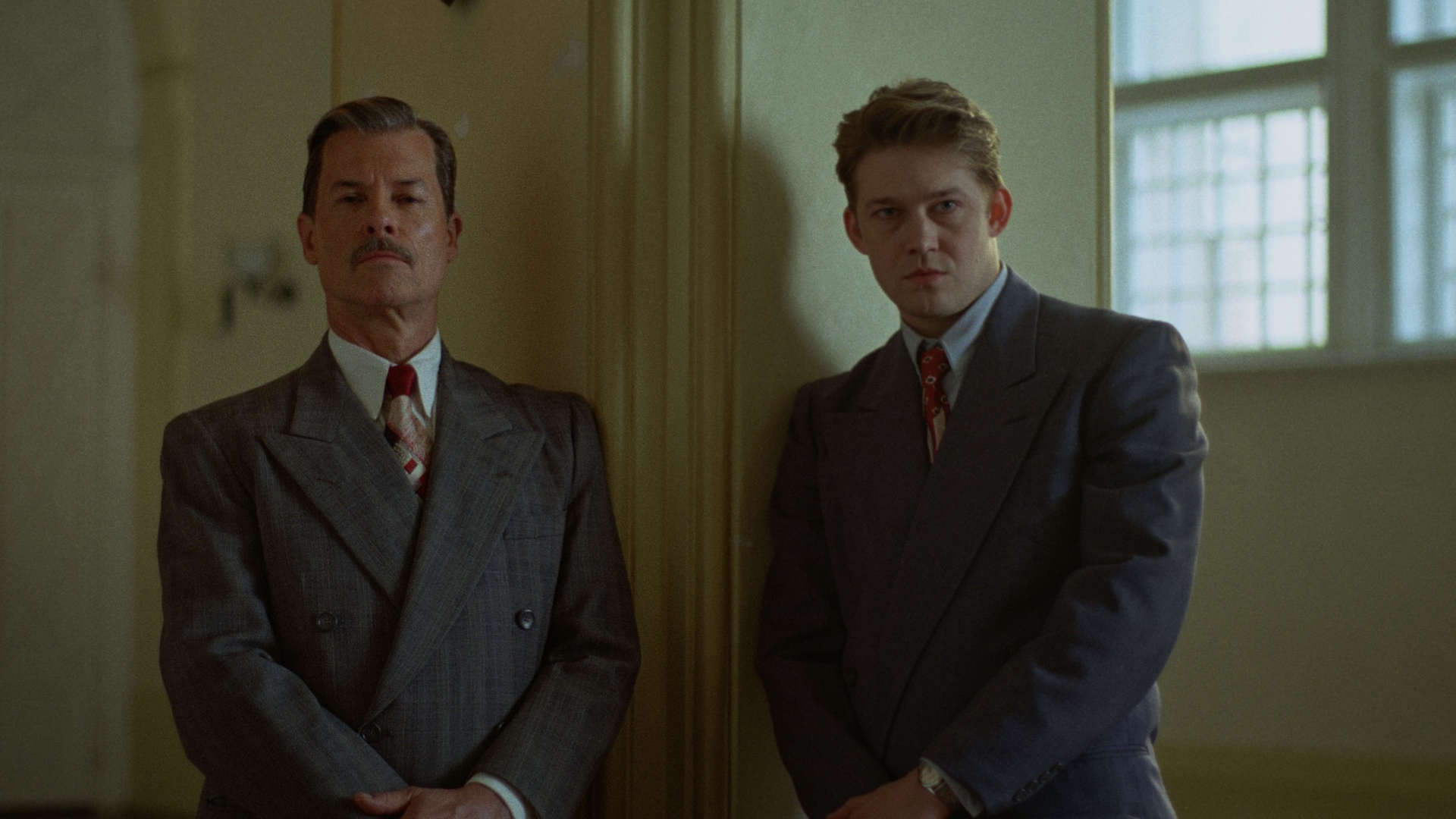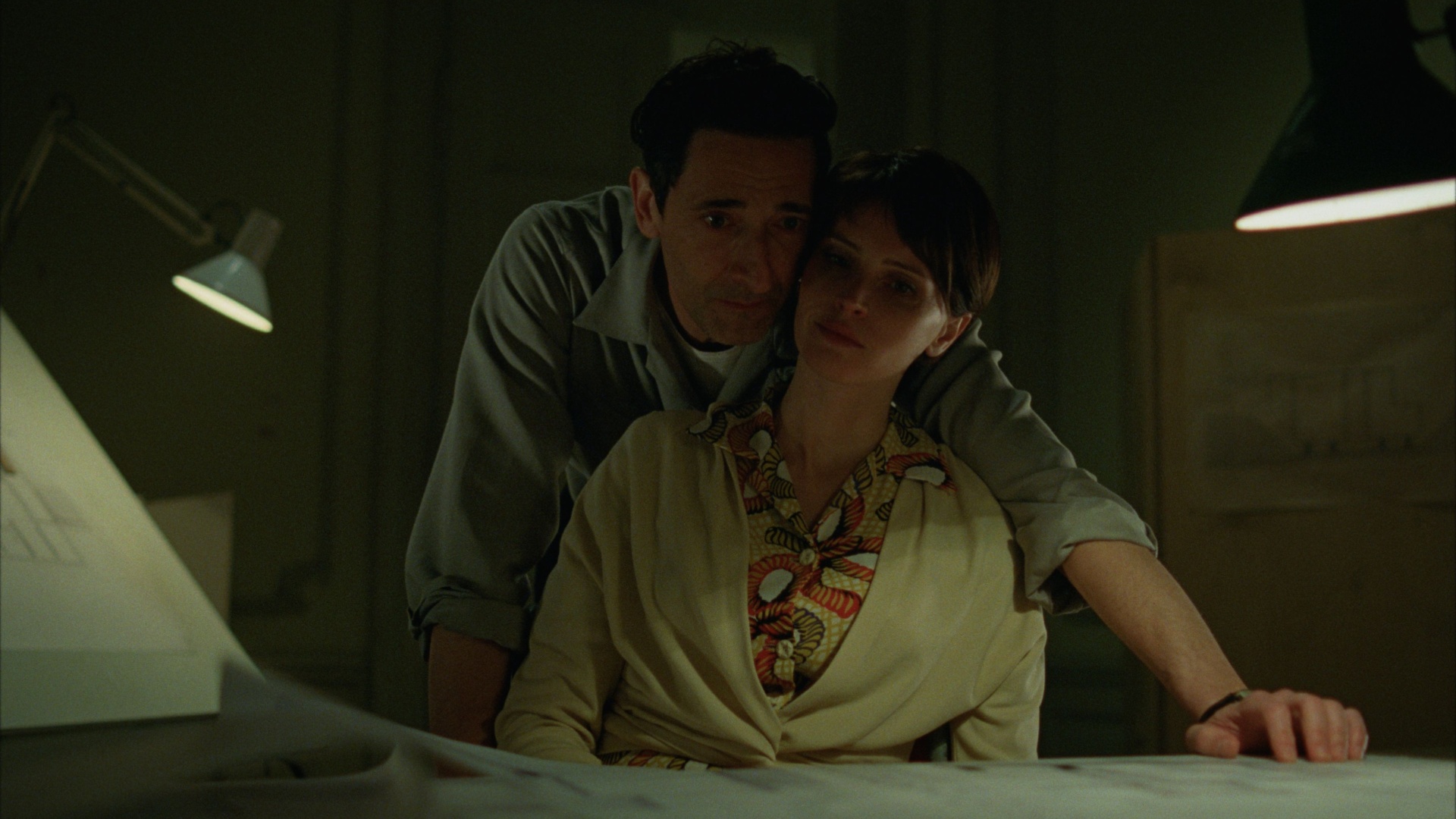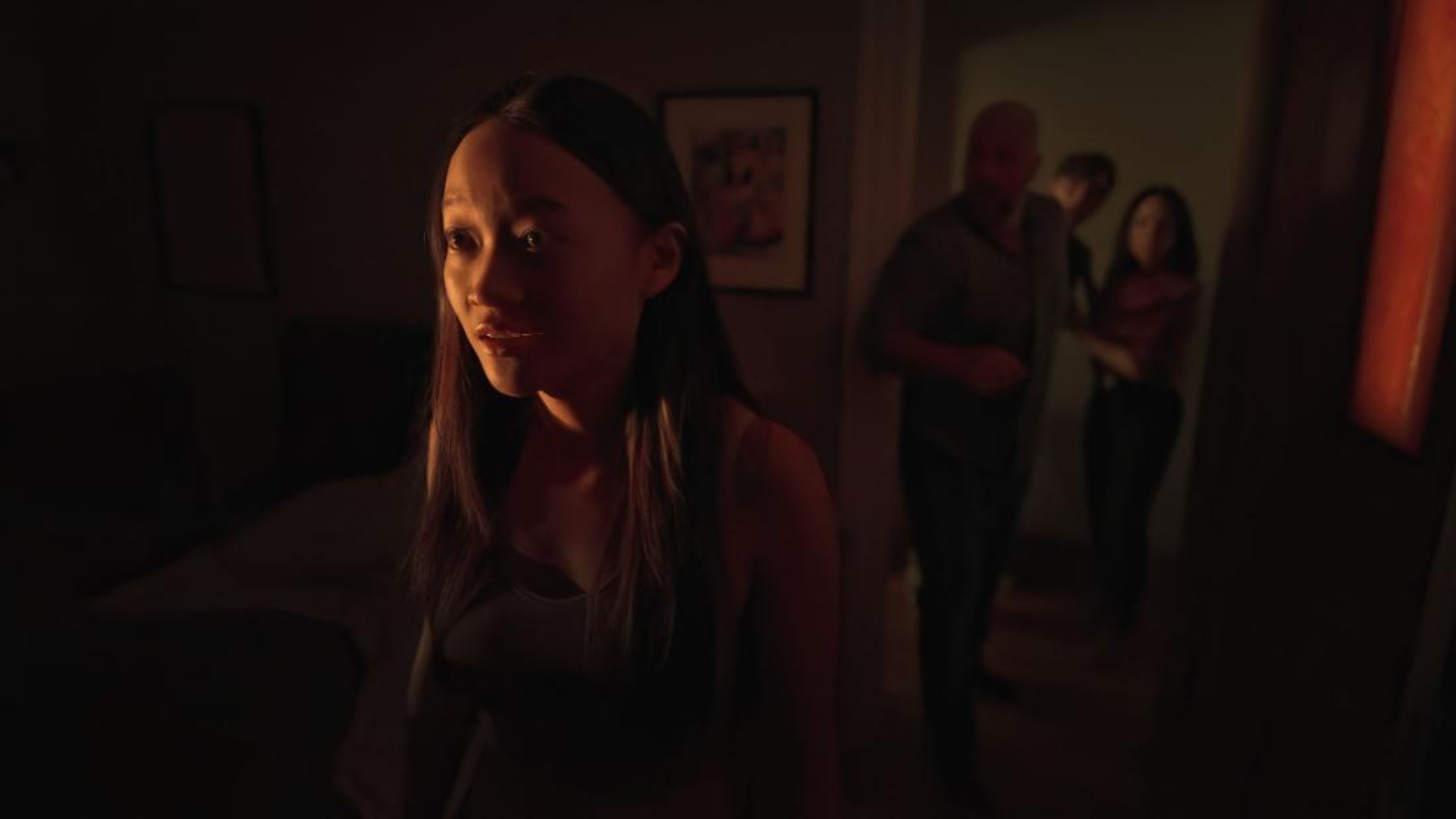Adrien Brody and the cast and director of The Brutalist on their Oscar-nominated movie: "To make great cinema, you have to be vulnerable"
Big Screen Spotlight | Adrien Brody, Felicity Jones, Joe Alwyn, and director Brady Corbet talk vulnerability, risk-taking, and intimacy in The Brutalist

When GamesRadar+ sits down with The Brutalist writer-director Brady Corbet to discuss his new post-war epic, he's just been nominated for Best Director at this year's BAFTAs. The movie is also up for eight other gongs, including Best Film, and, 10 days prior, picked up three Golden Globes. "It's totally unexpected, to be honest," Corbet tells us. "I assumed that the film would be a lot more divisive than it's been. Some people hate it but, for the most part, it's been a very warm reception." A week after our conversation, the movie was nominated for 10 Oscars.
Opening in 1947 on an immigrant steamship from Europe to New York and spanning over three decades over its three-and-a-half-hour runtime, The Brutalist follows renowned Bauhaus architect and Holocaust survivor László Tóth (Adrien Brody) as he ventures to the US from Hungary to start a new life. When we speak to Brody, he praises the film for being "both vast and very personal and intimate". He says László's "complexity" stood out to him, "his flaws and frailty and strengths".
Forcibly separated from his wife Erzsébet (Felicity Jones) and their niece Zsófia (Raffey Cassidy), László finds work at his cousin's furniture business in Philadelphia, where the duo is hired by the wealthy Van Buren family to renovate their library. While the initial project doesn't quite to go plan, Lázsló piques the interest of larger-than-life patriarch Harrison (Guy Pearce), who commissions him to design a monumental community center in small-town Pennsylvania – and offers to help him bring Erzsébet and Zsofia across the pond.
Power and control

Harrison's flamboyant eccentricity thinly masks a much more sinister personality of anger, prejudice, and hatred. He becomes a domineering figure in Lázsló's life, casting a shadow over everything in the film in much the same way as the planned building would over the landscape. Facing antisemitism and xenophobia and separated from his family, Lázsló often struggles to overcome the long shadow of Harrison's status and power. "I love that the film spoke to this collective yearning to belong and find home and assimilate, and how hard that is to really feel," Brody adds.
Harrison is often trailed by his self-important son, Joe Alwyn's Harry, who the actor describes as "just icky" when we speak to him over Zoom. "What I found interesting was thinking about their relationship as a father and son," Alwyn says. "[Harry's] probably someone who hasn't received much of the right kind of love in his life, and everything he's doing, even if it's skewed and ugly, it's kind of at the same time because he's searching for his dad's approval."
Shining a light on the under-the-radar theatrical releases that you need to know about, with a new article every Friday
Although ostensibly a movie about immigration and architecture, family dynamics (whether between father and son or husband and wife) underpin the film – although Erzsébet doesn't arrive on-screen until the movie's second half, her presence is felt strongly throughout. An accomplished journalist in Hungary, she's a headstrong figure whose "incredible dignity" is matched only by her love for her husband. This devotion is exemplified by the fact that she's a convert to Judaism, through which she "finds a very deep faith," according to Jones. "Perhaps in contrast to László, who has lost his faith, she actually needs that spiritual crutch much more. And perhaps he does but, in some ways, he finds that through her."
Sign up for the Total Film Newsletter
Bringing all the latest movie news, features, and reviews to your inbox
László's quest to reunite with his wife and niece in the film's first chapter parallels his ambitious concrete construction project in part two – art begins to imitate life and both goals fail to provide their desired catharsis. "The journey of being an artist is quite painful, and it's kind of a chipping away," Brody tells us. "So much of [László's] journey is rebuilding, and as he's laying this foundation for this thing that should be symbolic of that rebirth and his own triumph, it has many setbacks and obstacles and interventions to prevent it from blossoming and living up to his standards. And that's much like life and the artistic journey. You have to find beauty and gratitude in those moments that you do find great inspiration. We're all yearning for that."
"You've got to risk something"

After so many years apart, László and Erzsébet's relationship needs some time to find its footing. Their shared and separate traumas manifest in their bodies in different ways, and take a toll on the physical side of their relationship. "Erzsébet realizes that their sexual life is so important to their survival as a couple and she's refusing to let the trauma that they've gone through take away their desire, because then she feels as though the fascists have won," Jones explains when we ask her about the movie's sex scenes. "And so desire is so integral to the maintenance of their spirits. It reminded me of Isabelle Huppert in The Piano Teacher, some of those scenes that Erzsébet and László have. There's an intensity to their intimacy."
That kind of intimacy can only be achieved through sensitivity behind the camera, too. "[Corbet] and Mona [Fastvold, Corbet's screenwriting and real-life partner] were vulnerable in making the film because it was very personal," Jones adds. "But to make great cinema, you have to be vulnerable, really, as a director. Because you've got to risk something, haven't you, otherwise you're just going to say the same old things over again."
Corbet, though, is also thinking practically. "It's funny, the life of a filmmaker. It's freelance, forever," he explains, adding that The Brutalist's critical recognition is "a little bit of job security for the next couple of years. But that's kind of all it is. I mean, anyone who's won one of these prizes can tell you, 'I thought everything would change, and then it just didn't.' Martin Scorsese still struggles to get his own movies made, and he's Martin Scorsese."
He continues, "I think that it's great that people are having this response, but ultimately, in terms of what it's all for, I just hope – and it's not coming from a place of arrogance, I don't see myself as like some Robin Hood figure or something – but I really hope that the film makes it easier for other films to get made. I think that what is good for our film is good for the ecosystem of the medium."
The Brutalist is out now in UK cinemas and US theaters. For more on what to watch, check out the rest of our Big Screen Spotlight series.
I’m an Entertainment Writer here at GamesRadar+, covering everything film and TV-related across the Total Film and SFX sections. I help bring you all the latest news and also the occasional feature too. I’ve previously written for publications like HuffPost and i-D after getting my NCTJ Diploma in Multimedia Journalism.



